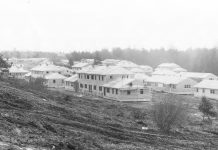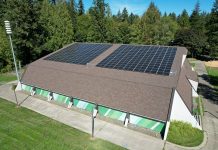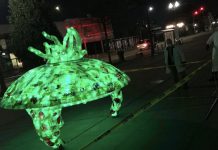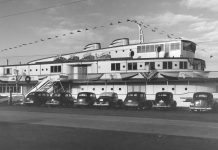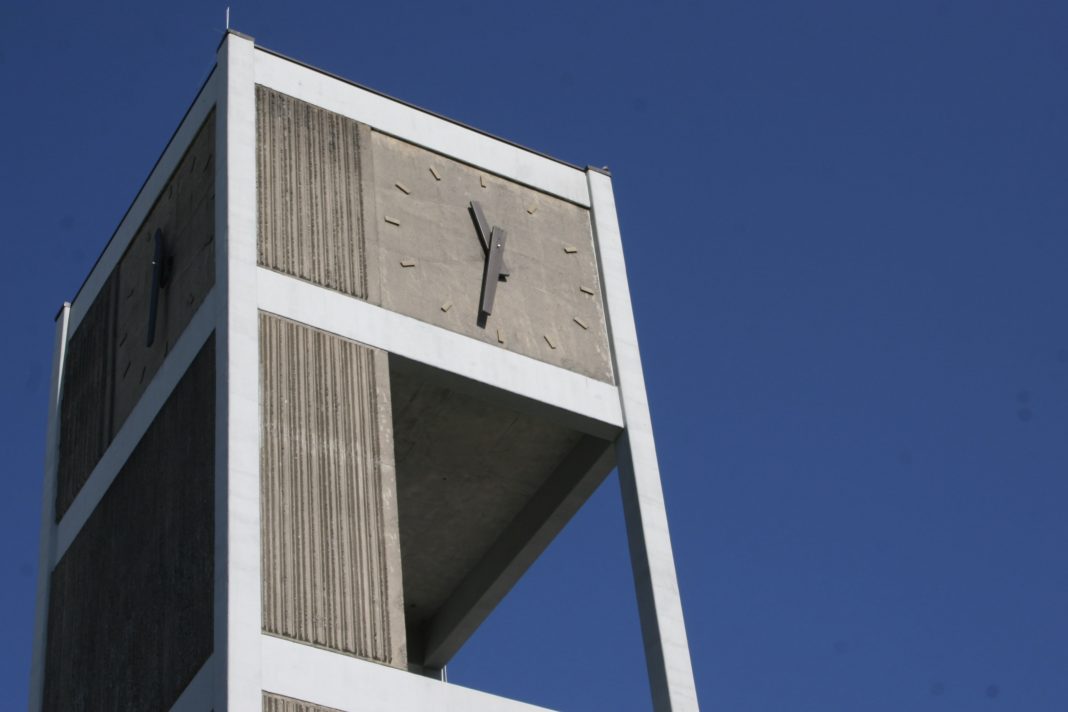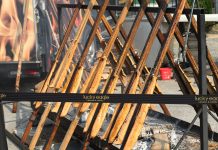The Evergreen State College, destined to be different from its inception, also has a clock tower, unlike any other college timepiece. A writing teacher, art instructor, college professor and one politician are among those who have rappelled the Olympia campus clock tower. Toured by a few and retrofitted with super-strength fabric, it has its mysteries and talking points.
Evergreen College Clock Tower’s Unique Architectural Design
At the east side of the Daniel J. Evans Library building, the tower rises 120 feet above Red Square. Part of the overall brutalist design seen throughout the college, which focuses on materials and textures, the clock tower complements the adjacent library. Brutalist characteristics of concrete in large forms, bold and commanding in the landscape, appear futuristic and modern. The clock tower carries the same large presence and a modern, straight-lined look.
Architect Robert Lewis Durham, a graduate of the University of Washington School of Architecture, designed the master plan for The Evergreen State College and library, which includes the connecting tower. Durham expressed a preference for modern design over short-lived styles. Partnering in the firm Durham, Anderson and Freed, he also designed Seattle Fire Department Station 5, which has a 60-foot tall, concrete tower of its own.
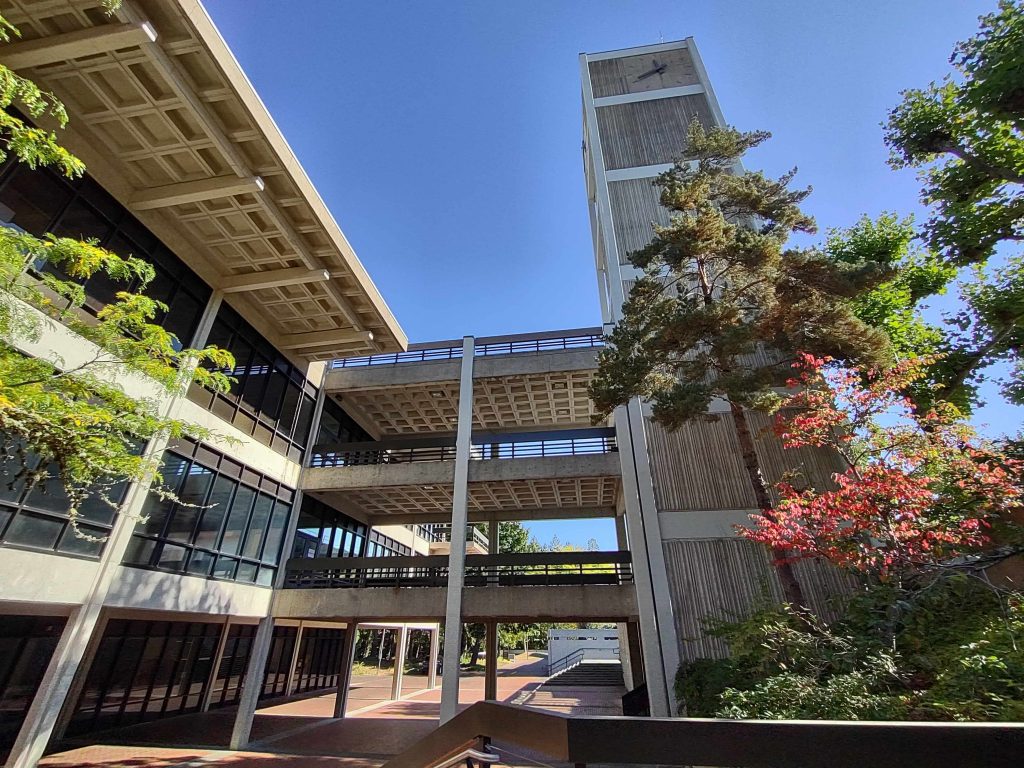
Evergreen Clock Tower Repairs
Campus newspaper articles from the 1996-1997 school year indicate problems with the clock being inaccurate or stopping altogether. David Scheer’s article in the September 1996 edition of the Cooper Point Journal (CPJ) states that, as of the article printing, one clock was permanently set at 11:50 while another was set to 4:20.
Jennifer Koogler’s article in the February 1997 CPJ reports the two sides were broken due to faulty motors, having stopped seven years prior. Facilities employee Sam Pooley indicated in the same article that someone had accessed the control area and changed the north-facing clock to 4:20 from the original time it stopped. Since the two clock faces visible to campus were operating, the challenging and expensive repairs waited.
“The clock tower’s large hands are controlled by motors in control panels no bigger than a computer screen,” Koogler says in the article. “In a small, chilly, concrete-walled room four stories above the top of the library, the panels are mounted on each of the walls, one for every side.” Koogler adds that turning the power on and off during clock adjustments requires a walk to the far side of the library basement.
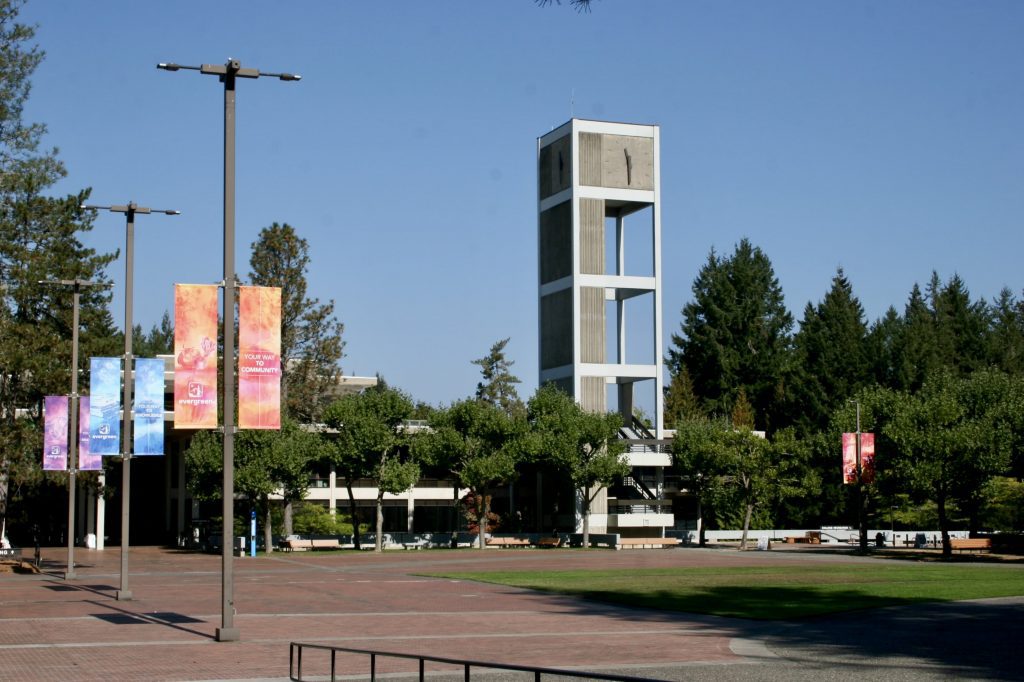
Replacing 1950-era parts in 1970-era motors, coupled with precarious installation feats, slowed repairs. Just like a mantle clock, the tower clock’s hands are loosened while a person repairs the mechanism on the other side. In Koogler’s article, college facilities indicated that a Washington State Labor and Industries plan would need to be drafted and a crane brought in so someone could stabilize the hands while work was completed.
Scheer’s articles in the June 1997 CPJ comments again on the clock faces displaying different times during repairs. “When the bugs are worked out,” writes Scheer, “and all the faces tell the same time, it will be the first time the faces have all worked at once in over a decade.”
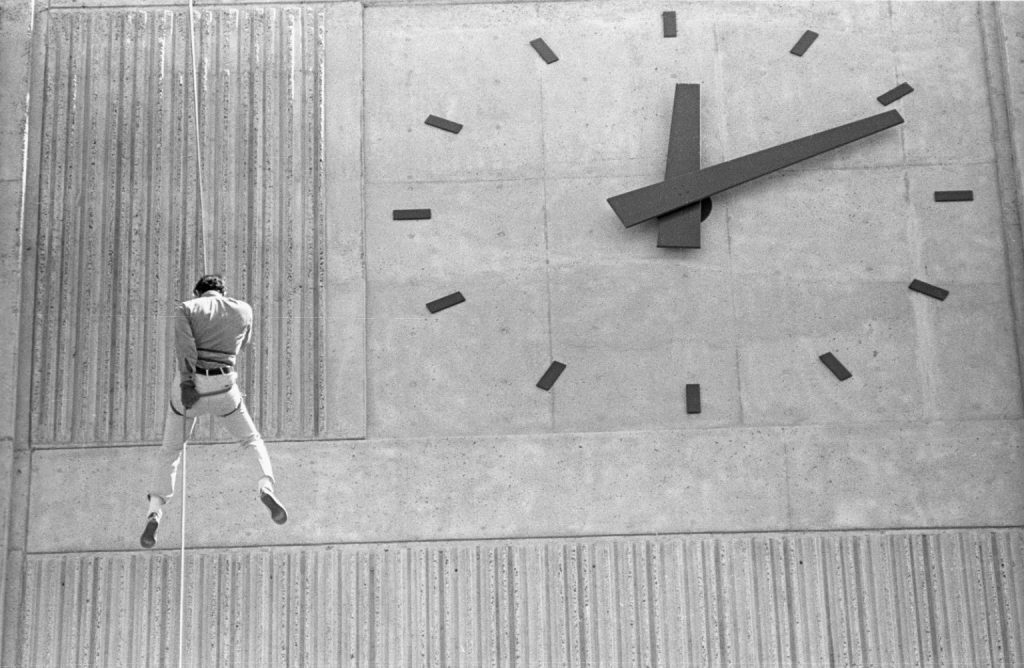
Rappelling The Evergreen State College Clock Tower
Besides indicating time, another purpose the 120-foot clock tower has served is rappelling. Very early on in its existence, professor of philosophy, Mount Everest climber and coordinator of Creativity Week, Willi Unsoeld, led students and staff in a rappelling activity from the library’s third-floor balcony. Art instructor Peggy Dickinson was among 6 faculty members and 20 students who made the daring descent in 1971.
Olympia High School students and their creative writing teacher, Carlye LaBell, visited the campus in January 1972. All rappelled and later wrote about their experiences. The most notable rappelling event was when Washington State Governor Dan Evans rappelled from the very top in front of a crowd to celebrate the 1973 opening and dedication of the Campus Recreation Center. In his 2021 autobiography, Evans, who had done some mountain climbing, retells the day when Unsoeld encouraged him to take part in the event.
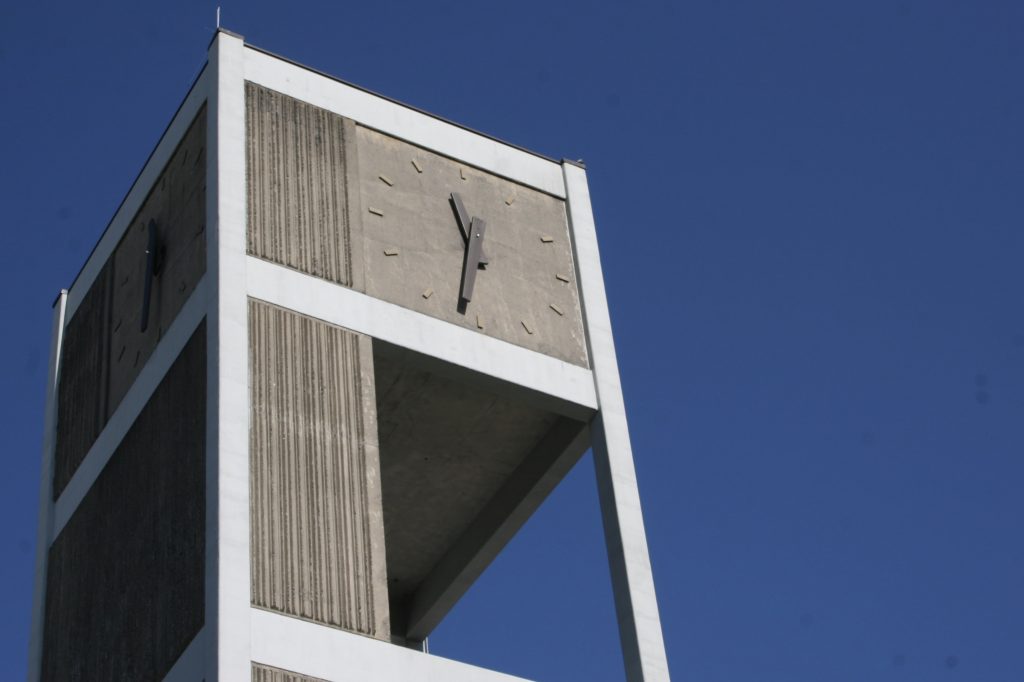
Seismic Retrofitting Keeps Evergreen College Tower Strong
Though the clock tower was unscathed by the 2001 Nisqually earthquake, the college included it in seismic analysis of the entire campus published in a 2002 report. Considering safety code changes since its original build, as well as potential safety issues, the school then made the tower the focus of the 2007 plan to reinforce it. A FEMA grant was obtained to pay for the needed work since the tower did pose a risk to people should it fall.
Seismic retrofitting, a Reid Middleton structural engineering project, was completed in 2012. Thin layers of carbon fiber were applied to prevent a devastating collapse in the event of an earthquake. A single square inch of the carbon fiber wrap can support 140,000 pounds while also allowing for movement and survival from damage without falling. Sections of the tower were then covered in sandy paint, keeping the look relatively unchanged.
In nearly every promotional picture, sketched on t-shirts and stamped on coffee mugs, The Evergreen State College clock tower remains a campus icon. And, though still unique among others, it shares the functional duty of telling time and representing a gathering place like its fellow community clocks. For more information on Evergreen, visit The Evergreen State College website.
Sponsored





